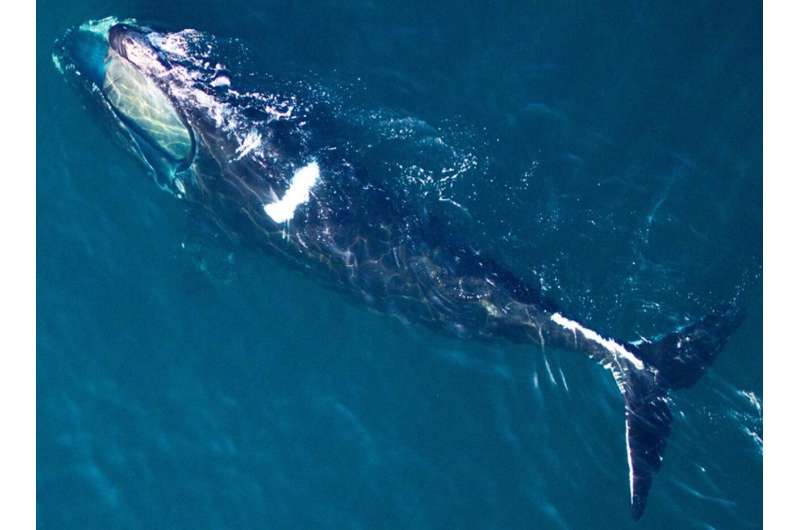New North Atlantic right whale health assessment review released

Woods Hole Oceanographic Institution (WHOI) along with National Oceanic and Atmospheric Administration (NOAA) Fisheries have released the first broad scale synthesis of available information derived from right whale health assessment techniques. The manuscript published today in the science journal Diseases of Aquatic Organisms, reviews available tools, and current understanding of the health status and trends of individual whales and the species. The paper concludes with recommendations for additional information needs and necessary management actions to enhance the health of individual right whales.
The manuscript is the result of a NOAA Fisheries workshop held in June 2019, in response to the ongoing North Atlantic right whale Unusual Mortality Event (UME) and the critically endangered status of the species. There are an estimated 366 left on the planet. Climate change, vessel strikes, entanglements and noise pollution can result in poor health and reproductive failure and are major threats to individuals and the species.
According to lead author Michael Moore, a whale trauma specialist at WHOI, "North Atlantic right whales face a serious risk of extinction, but there is hope if we can work together on solutions. Trauma reduction measures and applying new tools to assess their health are critically important to enhance the welfare of individual whales. If we can reduce the number of deaths, and successfully improve their health to increase reproduction, the current decline in population can be reversed."
"Conserving and recovering the critically endangered North Atlantic Right Whale is a research priority," said co-author Teri Rowles, NOAA Fisheries Senior Advisor for Marine Mammal Health Science. "In addition to the threats posed by humans, changing ocean conditions have profound impacts on where whales travel and how they behave. For these reasons, NOAA Fisheries was pleased to have hosted and sponsored this important workshop among partners to discuss how science can aid management."
Bringing together the data and results from existing monitoring tools like aerial and vessel photography, animal sampling and prey dynamics, in the context of vessel and fishing gear trauma offers researchers a better understanding of the challenges, and possible solutions. These include a greater emphasis in slowing vessels and changing their tracks where risk of collision exists; reducing entanglement by closing more high-risk areas to fixed fishing gear that retains rope in the water column; and reducing fishing gear density and strength in other areas.
North Atlantic right whales feed in the waters off New England and Eastern Canada and migrate to the waters off the Southeastern United States to give birth in the winter. NOAA Fisheries has designated two critical habitat areas for the North Atlantic population of right whales, including off the coast of New England and off the southeast U.S coast from North Carolina to below Central coastal Florida.
More information: MJ Moore et al. Assessing North Atlantic right whale health: threats, and development of tools critical for conservation of the species, Diseases of Aquatic Organisms (2021). DOI: 10.3354/dao03578
Provided by Woods Hole Oceanographic Institution



















